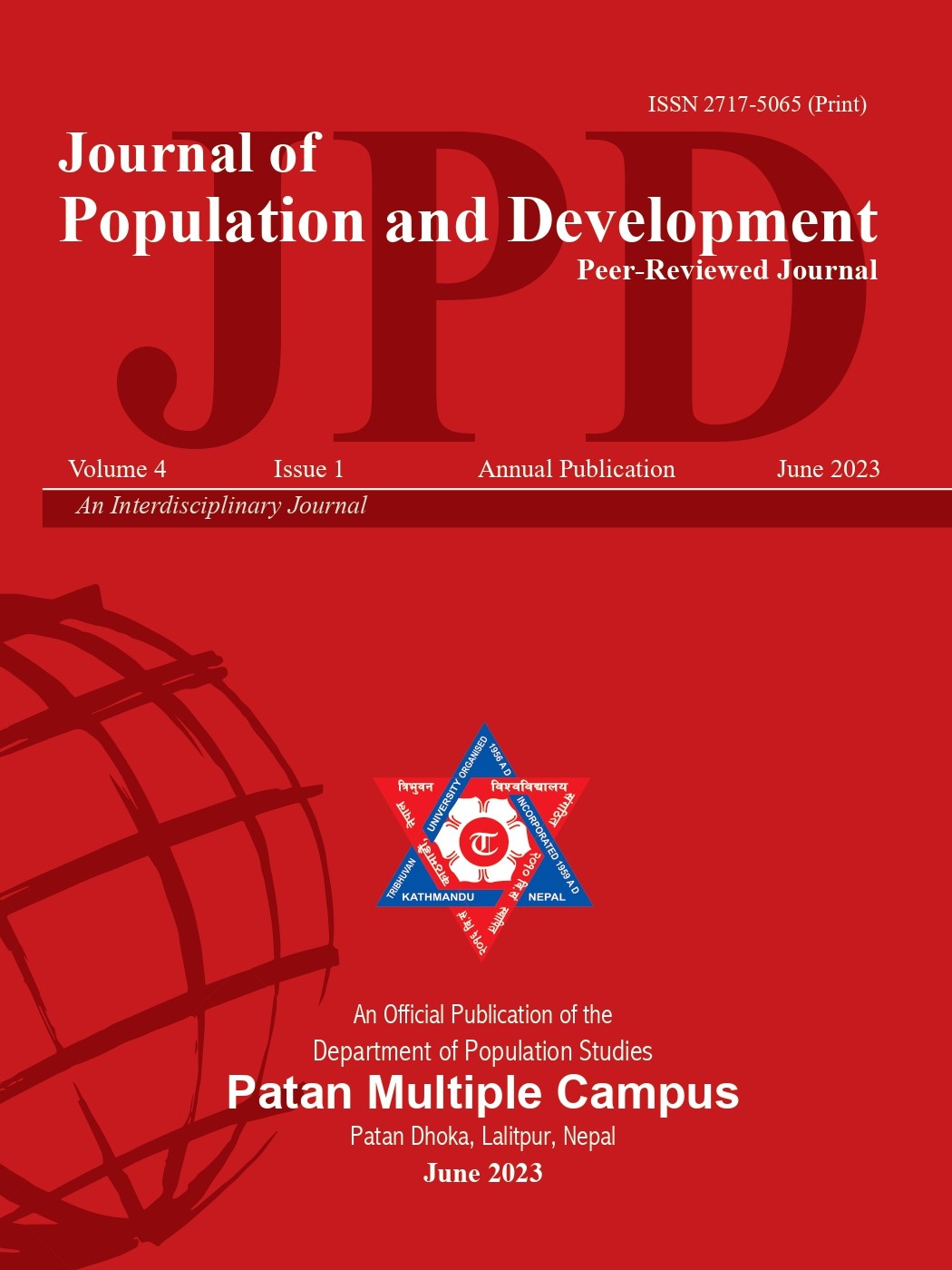Status of Human Development Index with Reference to Nepal
DOI:
https://doi.org/10.3126/jpd.v4i1.64256Keywords:
Income and Inequality, Human development index, life expectancy, EducationAbstract
This paper is based on ‘the status of Human Development Index (HDI)’ since 1990 to 2022. Even though the term "human development" is frequently used, its meaning varies depending on the region. The first time Human Development Report (HDR) was introduced in 1990s and new approach and indices for advancing human flourishing in the different time interval. The main purpose of this paper is to track the trends in national human development indices and to observe the circumstances surrounding human development. Primary source of secondary data used for meta-analysis of human development reports and related materials. The HDR emphases on a distinct issue that effect on measuring the multi-dimensional human development. HDI is getting popular to measure the development of a country with related to socio-economic status. It combines three critical indicators namely; education, life expectancy and standard of living. Nepal’s HDI position is 143rd ranked, among 191 countries in 2021. HDI reports shows in 2022 puts the 0.602 value. So, Nepal is Medium human development category. Between 1990 and 2022, Nepal's HDI value changed from 0.399 to 0.602, a change of 50.9 percent. Bagmati province scores the highest HDI value with (0.669) and Kathmandu valley has the highest HDI score with 0.622 values. In comparison with rural areas, urban regions have a higher score, but the gap narrows for the rural areas. So, the Nepalese’s Human Development Indicators are increasing trends.
Downloads
Downloads
Published
How to Cite
Issue
Section
License
© Department of Population Studies, Patan Multiple Campus

